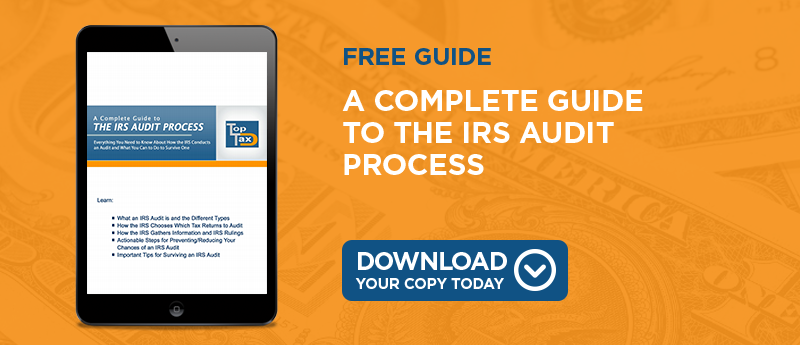You may pride yourself on being able to run a small business that provides quality services and products. For all of your success, however, you may be unaware that your tax returns could prompt the IRS to audit your company. In fact, many small business owners like you want to do everything in their power to avoid being audited. You can lower your own risk and continue to enjoy all of the success of running your own business by understanding some of the primary details that the IRS looks for when choosing whom to audit each year.
1) Missing Forms or Unreported Income
When you file taxes for your business, it is crucial that you fill out every required form and claim every applicable dollar if you want to avoid an audit. In many cases, the IRS is just as aware as you are about your income. Failing to file important details like your payroll taxes or your personal earnings puts you and your business in jeopardy of being audited.
Moreover, some small business owners falsely believe that the IRS will not notice if their lifestyles do not match the amount of income they report each year. If you are living lavishly, yet only claim a modest income, the IRS is more likely to audit you.
2) Claiming Personal Expenses as Business Related
The government likewise could audit you if you repeatedly claim personal expenses as belonging to your business. Including hair salon expenses, cell phone bills, and other costs that are normally associated with personal use on your business' returns puts you and your company in a suspicious light.
If these expenses can genuinely be linked back to your company, however, you should save the receipts to bolster your claims. Saving the receipts to prove your expenses can help you avoid being penalized and having to repay that money to the IRS.
3) Claiming a Home Office on Your Return
The IRS definitely allows people who operate their companies out of their homes to claim a home office on their returns. However, the criteria for doing so is notoriously narrow and in fact continue to change each year. With that, claiming a home office on your return could cause this organization to audit you.
If you plan to claim a home office on your tax return, it is highly recommended that you keep solid documentation and that you utilize professional tax services to file your taxes. A professional tax service can help you avoid unwanted attention and possibly an audit of your returns.
4) Repeatedly Claiming Losses
Every small business owner has an off year every once in a while, which is why the IRS lets owners claim losses and recoup some of that money. However, if you repeatedly claim losses year after year, you are going to draw the ire and suspicion of this agency.
In fact, if you claim losses three out of five years, the IRS may look at your small business as a hobby instead of a viable company. If it deems your company to be a hobby, you cannot enjoy any of the other tax perks that go along with running a small business. Rather than put yourself and your company at risk of being audited, you should use caution when claiming losses on your return.
5) Higher than Expected Deductions
Unusually high deductions also are liable to catch the eye of the IRS. If you report donating a lot of money to charity, yet seem to lack that kind of money to use for such a purpose, this agency may audit you to substantiate that report.
While donating to charity is certainly a worthwhile effort when you run your own small business, you should be honest when claiming such a deduction. Deductions remain one of the primary details that the IRS examines when determining whether or not to audit people each year.
6) Underpayments
Perhaps the most common infraction that leads to people being audited involves underpaying what they actually owe to the government. Paying taxes can indeed be a bit of a hardship, especially if your small business had a lackluster year. Even so, it is crucial that you pay exactly what you owe and not a cent under that amount.
If you underpay your taxes, the IRS could audit you to determine if you purposely withheld that money or if you accidentally left it out because of a mistake or oversight. Proving that you accidentally forgot to pay the right amount of taxes can be difficult, leaving you open to the risk of collection and garnishment. Rather than face collection activities, garnishment, or even fraud charges, you should make a concerted effort to pay the correct amount of money each year and avoid underpaying what you rightfully owe.
The IRS audits small business owners just as it audits private citizens. You can avoid such scrutiny by avoiding these common practices that draw the suspicion of this agency.


